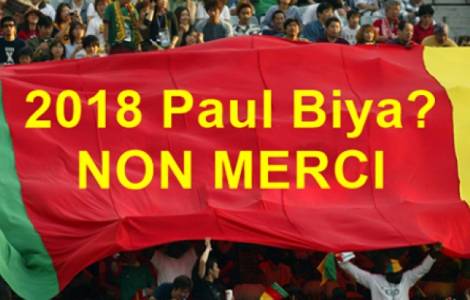
Yaoundé (Agenzia Fides) - "I question myself on the conduct of the vote", said His Exc. Mgr. Samuel Kleda, Archbishop of Douala, the day after the re-election of Paul Biya as President of Cameroon for the seventh time. According to the final results, the outgoing President was re-elected with 71.28% of the votes.
The count was marked by a strong abstention in the English-speaking regions that a year ago proclaimed secession from the rest of the Country. "If we take the case of the extreme north, apparently 89% of the people, who have been suffering for years, voted for current leaders and this raises serious problems. I also look at the English-speaking area, where the percentages in favor of the party in power are very high. Since it was not possible to do an electoral campaign in these two regions, where do these percentages come from?", asks Msgr. Kleda.
Therefore, the Archbishop of Douala believes that one should listen to the complaints of the defeated candidate, Maurice Kamto, who obtained a percentage of 14.23%, according to whom the vote was affected by heavy irregularities. During the elections of 7 October, the Cameroonian Episcopal Conference had deployed 231 observers from the Justice and Peace Commission, which found various anomalies.
At the end of the XV Ordinary General Assembly of the Synod of Bishops, His Exc. Mgr. Andrew Nkea, Bishop of Manfe, denounced the violence committed by the army in the English-speaking regions and called for dialogue between the parties to resolve the crisis. "This is the elite of the country you are wiping out" he said turning to the military. "It is not a foreign country you are fighting or an outside invader that you are rejecting". And then, addressing the young people who have joined the secessionist guerrilla movements: "My message to young people who are in the bush that fight and attack soldiers, is that they should look for ways to dialogue". (L.M.) (Agenzia Fides, 29/10/2018)